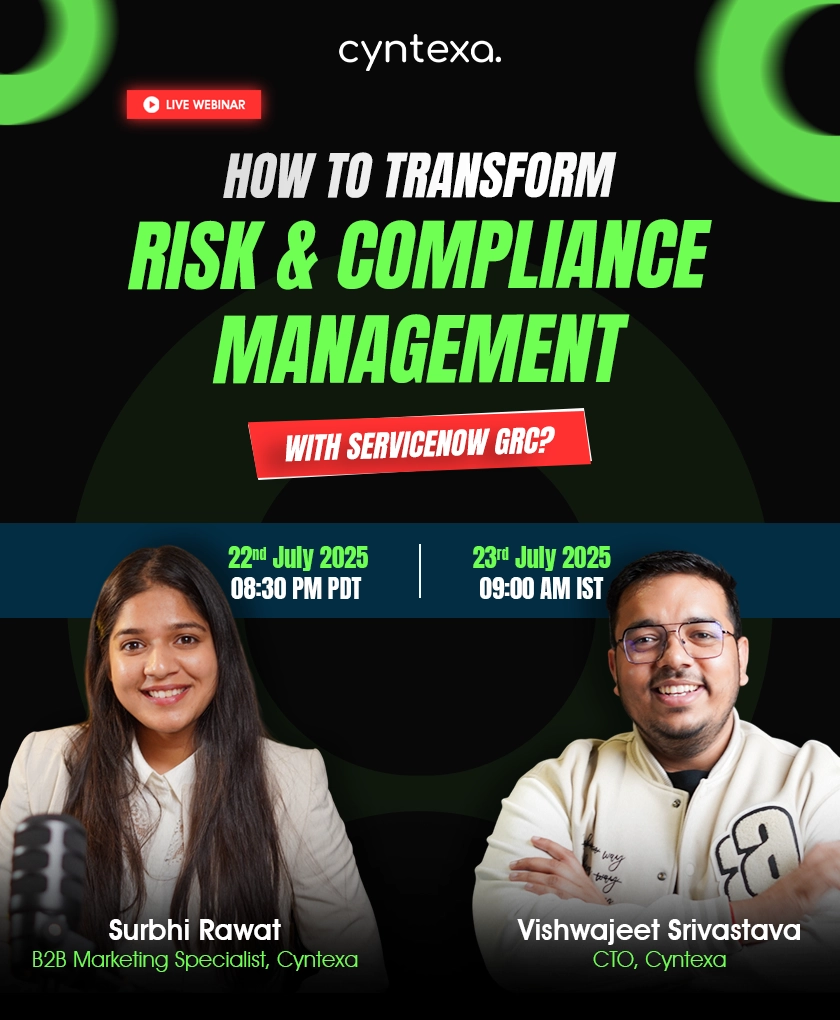ServiceNow’s AI-Powered CRM: The Future of Customer Engagement
Table of Contents
What if your CRM didn’t just record interactions, but actively improved them?
That’s exactly what ServiceNow’s AI-powered CRM is built to do. Announced at Knowledge 2025, it’s more than a system of record, it’s a unified, AI-first platform that combines sales, fulfillment, and service together in one seamless workflow.
In this blog, you’ll explore:
- Key characteristics that define ServiceNow CRM solution,
- How Unified AI, Data, and Workflows Empower Sales, Fulfillment, and Service Teams,
- Comprehensive ServiceNow CRM Use Cases Delivered End-to-End,
- ServiceNow CRM vs. Legacy CRM: Which one is better?
- And more.
If you’ve been rethinking what modern CRM should actually deliver, this is where the future begins.
What Is ServiceNow CRM?
ServiceNow CRM is a next-generation, AI-native platform built to manage the entire customer lifecycle from lead to fulfillment support, all within a single system. Unlike legacy CRM that stops at sales or support, ServiceNow’s CRM integrates deeply across departments and systems, becoming a true system of action, not just a system of record.
At its core, CRM in ServiceNow brings three disciplines: selling, fulfilling and servicing into one seamless workflow. This is possible because it is built on the Now Platform, a unified cloud-native architecture that already supports IT, HR, and operations across 85% of the Fortune 500.
This same infrastructure now powers customer-facing workflows, infused with intelligent AI agents that can autonomously resolve requests, execute tasks and collaborate with human teams in real-time.
Key characteristics that define ServiceNow CRM:
Here’s what you can expect from CRM in ServiceNow:
Unified Architecture
ServiceNow CRM brings one data model, one workflow engine, one architecture and shared intelligence across the business. No matter how many integrations you’ve done, this one unified platform prevents your data from going into a silos stage offering your teams seamless collaboration across departments.
Agentic Workflows
ServiceNow does more than just tasks automation. It enables Agentic AI to manage end-to-end processes. These AI Agents don’t follow scripts, they observe, decide and take action autonomously. Orchestrated by a central AI Agent Orchestrator, they handle real work across systems, qualifying leads, processing returns and triggering service visits with or without human intervention.
Real-Time Orchestration
With direct connections into ERPs, billing platforms, inventory systems and more, ServiceNow CRM eliminates lag. AI Agents can access and update data instantly, ensuring every customer interaction reflects the most recent information. Be address changes, order updates, part shortages, it all gets resolved in real time, without waiting on periodic syncs or manual updates.
Proactive Personalization
This isn’t just your regular AI that reacts, this one anticipates. ServiceNow CRM continuously learns from historical data and real-time context to surface next-best actions, nudge sales reps at the right moment or proactively solve service issues before they escalate.
ServiceNow CRM transforms customer engagement from fragmented and reactive to unified and proactive. It’s not trying to make CRMs better at storing data, it’s giving them the ability to act on it intelligently.
How Unified AI, Data, and Workflows Empower Sales, Fulfillment, and Service Teams?
Today, the value of any CRM platform is measured by how well it is supporting the people using it, those who are responsible for driving revenue, fulfilling commitments and delivering customer support at scale.
ServiceNow AI-powered CRM introduces a fundamentally cohesive approach that unifies data, decision-making and execution through a single intelligent system.
For Sales
With ServiceNow CRM, sales teams are no longer required to coordinate deals with disconnected tools. The entire sales process—lead qualification, configure-price-quote (CPQ), proposal generation, and order management is managed within a single workspace.
AI agents guide each step, recommending optimal product configurations and even generating quotes automatically. The integration of Logik.ai’s advanced CPQ engine improves accuracy and responsiveness, enabling sales professionals to fasten cycle times and focus on consultative selling rather than administrative tasks.
For Fulfillment
ServiceNow bridges the gap between the sales commitment and operational execution. Once a deal is confirmed, fulfillment processes are automatically triggered. AI agents help with real-time inventory checks, synchronize dependencies across systems and escalate issues when needed.
For example, if a component is unavailable, the platform proactively recommends alternatives and updates stakeholders accordingly. This level of orchestration led to faster delivery times, fewer errors, and stronger customer confidence in post-sale execution.
For Service
Customer service teams are the ones which mostly benefit from the platform’s AI-driven architecture. AI Agents automatically resolve tier-1 issues before they become a high-end problem. In case of escalations, all relevant context like interaction summaries, customer data, case history, and knowledge recommendations are made available in real-time.
As per ServiceNow, AI agents are already handling 37% of their own customer support cases independently. This helps support teams work more efficiently, resolve issues faster, and deliver a better experience to customers. It’s a clear example of how AI can move businesses from reactive support to smarter, more proactive service.
Organizations like Pure Storage have already reported measurable improvements in efficiency and customer satisfaction by leveraging these capabilities.
One System, Shared Context
The key to all of this is a single, intelligent system that synchronizes people, processes, and platforms. Whether it’s a sales call, a delivery update, or a service interaction, every team operates from a common set of data and workflows, bringing consistency, efficiency, and a more cohesive customer experience.
For organizations looking to unify their customer-facing operations, partnering with an experienced ServiceNow Consulting Services provider ensures that the adoption of ServiceNow CRM is strategically planned, expertly executed, and operationally impactful from day one.
Comprehensive ServiceNow CRM Use Cases Delivered End-to-End
Below is a breakdown of how ServiceNow natively supports critical CRM use cases across the value chain:
Sales Automation
ServiceNow automates the lead-to-cash journey in a way that eliminates the friction between marketing, sales, and operations. From capturing and qualifying leads to generating quotes and closing deals, every step happens within the same environment.
The integration of advanced CPQ allows for real-time product configuration, pricing, and approval workflows. Sales teams no longer need to switch between systems or manually reconcile data—quotes are accurate, approvals are faster, and orders are error-free.
Order Management
Once an order is placed, ServiceNow CRM doesn’t stop, it initiates fulfillment workflows immediately. The platform coordinates activities across provisioning, logistics, inventory, and billing in real time. AI agents proactively monitor process integrity and flag issues like backorders or missed dependencies, ensuring nothing falls through the cracks.
This level of orchestration is particularly valuable in industries with complex product delivery models, such as telecom, SaaS, or industrial equipment, where fragmented handoffs often compromise SLAs and customer satisfaction.
Customer Onboarding
Onboarding is often the first operational experience a customer has after a sale and a key factor that decides the long-term satisfaction and retention. ServiceNow helps organizations to deliver personalized, automated onboarding journeys inclusive of welcome communications, account setup, service provisioning, and training coordination.
Predefined workflows provide consistency, while intelligent orchestration adapts each step based on product type, user role, or industry vertical. This allows teams to scale onboarding without sacrificing quality.
Complaint Resolution
Handling complaints well isn’t just about fixing problems, it’s about showing customers they matter. With ServiceNow, the entire complaint resolution process happens in one smart system. Everything an agent needs: past conversations, service history, deadlines, and next steps, is right there in one place, making it easier to respond quickly and accurately.
AI-powered playbooks guide agents with real-time suggestions, so they’re not guessing their way through tough cases. And the results speak for themselves: many organizations using ServiceNow have seen resolution times improve by 50 to 70%, even when handling a large volume of cases.
Product Returns
Returns and RMA workflows generally cover CRM, ERP, logistics, and customer service systems leading to unstructured, error-prone processes.
ServiceNow caters this through a unified returns workflow. AI agents manage routine validations (e.g., warranty checks), initiate shipping logistics, and sync inventory updates automatically.
Customers benefit from real-time visibility, while internal teams are freed from repetitive manual coordination. This is especially ideal for retail, electronics, and hardware-centric industries.
Warranty Claims
Warranty management has always been one of the trickiest parts of post-sale service because of its cross-functional, time-sensitive, and often messy processes. ServiceNow is cutting through that complexity by bringing everything: claims intake, validation, inspections, and fulfillment in one streamlined workflow.
And it’s getting even better. With purpose-built AI agents on the way for industries like manufacturing and telecom, much of the manual back-and-forth will soon be handled automatically. That means faster resolutions, fewer errors, and a lot less chasing.
Leveraging the Potential Of ServiceNow CRM Across Industries
Another good thing is ServiceNow CRM offers industry-specific architecture, a direct challenge to the traditional, monolithic CRM systems that demand heavy customization from day one.
Rather than forcing organizations to retrofit generic features into sector-specific needs, ServiceNow delivers prebuilt solution accelerators with embedded domain logic, compliant data models, and AI-optimized workflows tailored for each industry.
Here is how ServiceNow leverage its CRM offerings across different industries:
Retail
In retail, ServiceNow bridges physical and digital channels to create frictionless customer journeys. Store associates get clienteling tools, while AI engines detect stockouts and proactively trigger alternate offers or personalized promotions.
For example, when a customer returns a product in-store, the system can automatically generate an e-voucher or recommend a cross-sell offer online, increasing revenue while strengthening loyalty.
Service workflows, order visibility, inventory management, and marketing campaigns are connected in real time, enabling brands to operate at the speed of customer expectation.
Financial Services
Financial institutions operate in a highly regulated, high-volume environment. ServiceNow CRM solution enables end-to-end case handling with embedded risk and compliance workflows.
For example, a mortgage inquiry can be easily managed through document intake, KYC checks, underwriting reviews, and approval stages, without manual intervention. AI agents assist with fraud detection, payment dispute resolution, and customer onboarding by applying predefined financial logic, which reduces processing time and operational risk.
The result is hyper-personalized, compliant service delivery with measurable reductions in cost-to-serve and operational drag.
Healthcare
In healthcare, disconnected systems can put too many confidential things at risk. ServiceNow brings together clinical operations, patient engagement, and support services into a single intelligent platform.
Care teams can coordinate scheduling, referrals, insurance verifications, and follow-ups through one workflow. AI agents assist with patient intake, claims authorization, and case resolution while guiding patients through mobile-accessible self-service options.
Public Sector
Governments and public agencies face growing pressure to deliver timely, transparent services with limited resources. ServiceNow simplifies case intake, routing, and fulfillment, be it a benefits application, a permit request, or a service complaint.
Intelligent workflows guide employees through decision-making, flag regulatory gaps, and ensure that resource allocation aligns with policy goals. Citizens receive real-time status updates, AI-powered self-help, and personalized communication.
Telecommunications
In telecom, customer experience hinges on speed and reliability. ServiceNow enables telecom companies to unify customer service, field operations, and network health on a single platform.
AI agents automatically initiate diagnostics for service disruptions, reroute support cases based on network topology, and streamline provisioning workflows for new plans or upgrades. Sales agents are equipped with contextual insights, while customers benefit from real-time status updates and faster issue resolution.
ServiceNow CRM vs. Legacy CRM: Which one is better?
As Customer Relationship Management is becoming a core component for digital transformation, the gap between legacy systems and modern, AI-powered platforms is widening.
Here is the detailed difference between how ServiceNow CRM is better than traditional CRM solutions:
| ServiceNow CRM vs. Legacy CRM | ||
|---|---|---|
| Capability | Legacy CRM Systems | ServiceNow AI-Powered CRM |
| Platform Scope | Limited to front-office functions (sales or support). | Unifies front, middle, and back office: sales, service, and operations on one platform. |
| Architecture | Fragmented and integration-heavy; relies on multiple tools (ERP, CPQ, service desk). | Single data model and workflow engine across all departments—no duct tape required. |
| AI Integration | Basic bots or bolt-on AI features with limited workflow intelligence. | Native agentic AI with autonomous agents that observe, decide, and act across workflows. |
| Workflow Automation | Often requires human handoffs or external triggers to complete processes. | End-to-end orchestration—order capture, fulfillment, and support in one automated flow. |
| Time to Value | Long implementation cycles; heavy reliance on consultants for customizations. | Pre-built workflows and deployable AI agents enable faster go-lives and quicker ROI. |
| Personalization & Intelligence | Static segmentation and reactive support. | Proactive, learning-based engagement; AI predicts needs and initiates resolutions. |
| Total Cost of Ownership (TCO) | High due to multiple licenses, integration costs, and maintenance overhead. | Lower TCO through platform consolidation and reduced complexity. |
| Scalability Across Industries | Requires heavy customization for each sector. | Industry-specific workflows and data models available out of the box. |


Conclusion
The real promise of ServiceNow’s AI-powered CRM isn’t just about doing things faster, it’s about doing them better.
So ask yourself:
Is your CRM just managing customer data, or is it helping your people truly deliver for your customers?
That difference matters. Because the businesses that lead tomorrow will be the ones that stop patching legacy tools and start building connected, intelligent systems today.
And that’s where the right guidance makes all the difference. With deep platform expertise, our ServiceNow Consulting Services help organizations design and implement CRM strategies that aren’t just technically sound, they’re built around how your people work best.
The future of CRM is already taking shape. Partner with those who know how to build it right.
Don’t Worry, We Got You Covered!
Get The Expert curated eGuide straight to your inbox and get going with the Salesforce Excellence.
AUTHOR
Shruti
ServiceNow, Sales Cloud
Shruti is a ServiceNow Consultant with 5+ years of experience across ServiceNow ITSM, AWS, Salesforce Loyalty Management, and managed services. She blends technical expertise with strategic insights to deliver transformative IT services and CRM solutions that enhance efficiency and customer satisfaction.


Cyntexa.
Join Our Newsletter. Get Your Daily Dose Of Search Know-How









